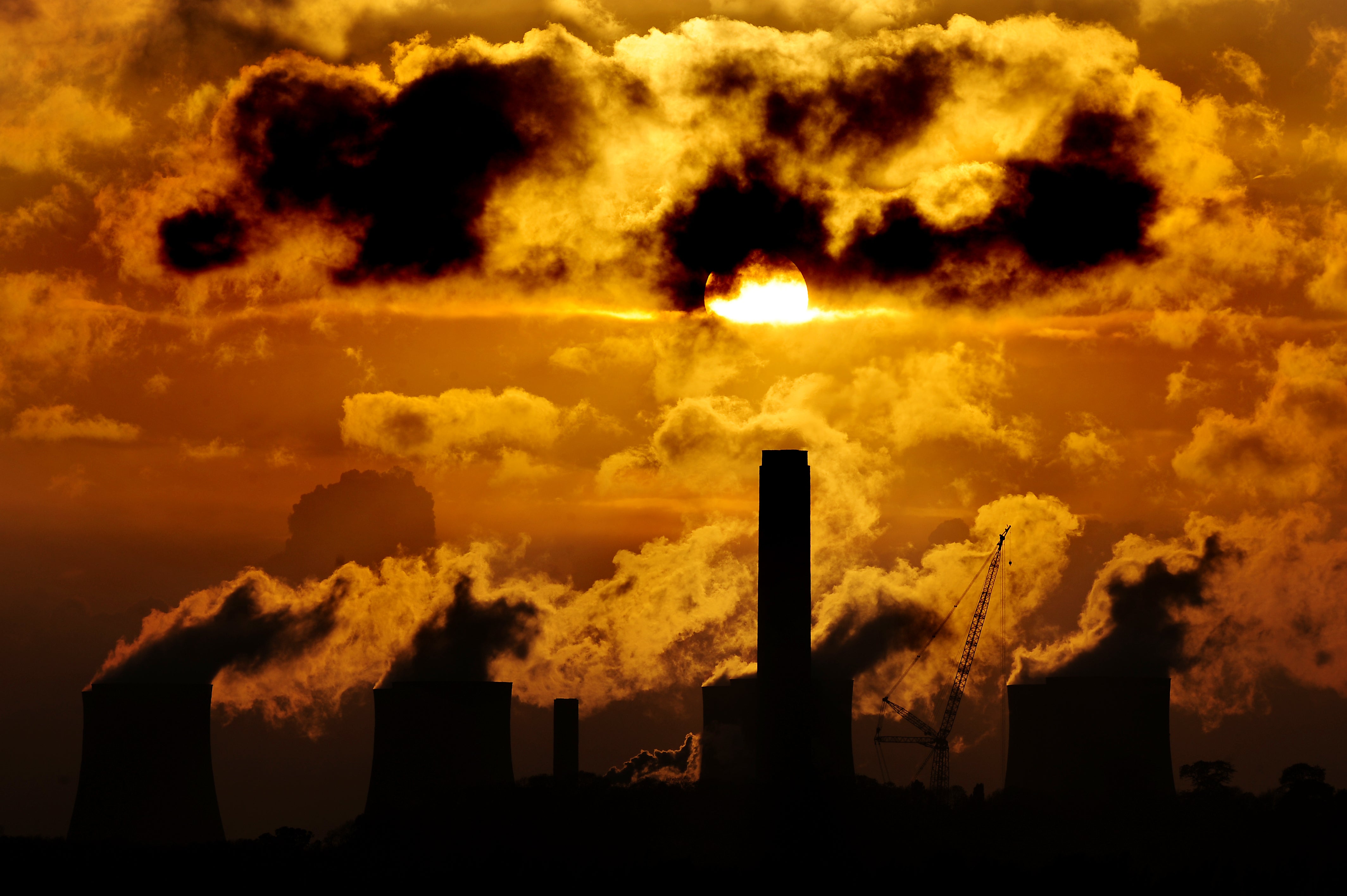Full delivery of climate pledges could keep warming to just below 2C, study says
But experts said urgent policies and actions are needed from countries to cut emissions this decade to limit temperature rises to 1.5C.

Your support helps us to tell the story
From reproductive rights to climate change to Big Tech, The Independent is on the ground when the story is developing. Whether it's investigating the financials of Elon Musk's pro-Trump PAC or producing our latest documentary, 'The A Word', which shines a light on the American women fighting for reproductive rights, we know how important it is to parse out the facts from the messaging.
At such a critical moment in US history, we need reporters on the ground. Your donation allows us to keep sending journalists to speak to both sides of the story.
The Independent is trusted by Americans across the entire political spectrum. And unlike many other quality news outlets, we choose not to lock Americans out of our reporting and analysis with paywalls. We believe quality journalism should be available to everyone, paid for by those who can afford it.
Your support makes all the difference.Global warming could be kept to just below 2C if all climate commitments by countries are implemented “in full and on time”, scientists have found.
Analysis led by Australian scientists examined the impact of pledges of action to curb emissions up to 2030, and over the long term, made by countries and sectors before the end of the Cop26 climate summit in Glasgow in November.
The computer modelling study found that if all the commitments are delivered on, temperature rises could be limited to a peak of 1.9C to 2C.
But the paper, published in the journal Nature, warns that more urgently needs to be done to curb warming to the limits that countries agreed under the 2015 Paris Agreement to avoid the most dangerous impacts of climate change.
Long-term targets should be treated with scepticism if they are not supported by short-term commitments to put countries on a pathway to meet those targets in the next decade
The pledges to cut greenhouse gas emissions made up to the end of the Cop26 talks provide only a 6-10% chance of curbing warming to 1.5C.
The world is already seeing increasing floods, storms, heatwaves and wildfires as a result of climate change, and beyond 1.5C of warming, more extreme weather, crop damage and losses of key systems such as coral reefs are expected.
Limiting warming not only to “just below” 2C but to the Paris targets of “well below” 2C or to 1.5C “urgently requires policies and actions to bring about steep emission reductions this decade” aligned with bringing global carbon emissions down to zero overall – net zero – by mid century, the scientists warn.
The paper looked at new or updated commitments for action in the next decade that had been submitted by the end of the Cop26 summit, under a “ratchet” process in the Paris treaty to increase ambition to drive down fossil fuel emissions and other pollution causing climate change.
The study also included long-term pledges to cut emissions to net zero by 2050 or later.
“Our results provide a reason to be optimistic: warming could be limited to 2C or just below, if the pledges on the table are implemented in full and on time.
“Peaking of global greenhouse gas emissions could be achieved this decade. But our results also provide a sobering assessment of how far current pledges are from limiting warming to 1.5C,” the scientists write.
The findings from the scientists are in line with analysis by independent analysts Climate Action Tracker (CAT) released in Glasgow in November which found that under the most optimistic scenario, temperatures could peak at 1.8C.
But CAT experts warned that analysis looking at policies which governments are currently implementing puts warming at 2.7C over the long term.
And in a commentary piece also published in the journal Nature, experts said the commitments could ensure global warming does not exceed 2C above pre-industrial levels before 2100, but only if backed up by short-term policies.
Writing in the journal, US scientists Zeke Hausfather and Frances C Moore said: “It is easy to set ambitious climate targets for 30, 40 or even 50 years in the future — but it is much harder to enact policies today that shift energy systems towards a more sustainable future.
“Long-term targets should be treated with scepticism if they are not supported by short-term commitments to put countries on a pathway to meet those targets in the next decade.”
They warned there was no guarantee that countries would meet their 2030 pledges – and said the target to curb warming to 1.5C was slipping out of reach, with temperatures already around 1.2C above pre-industrial levels.